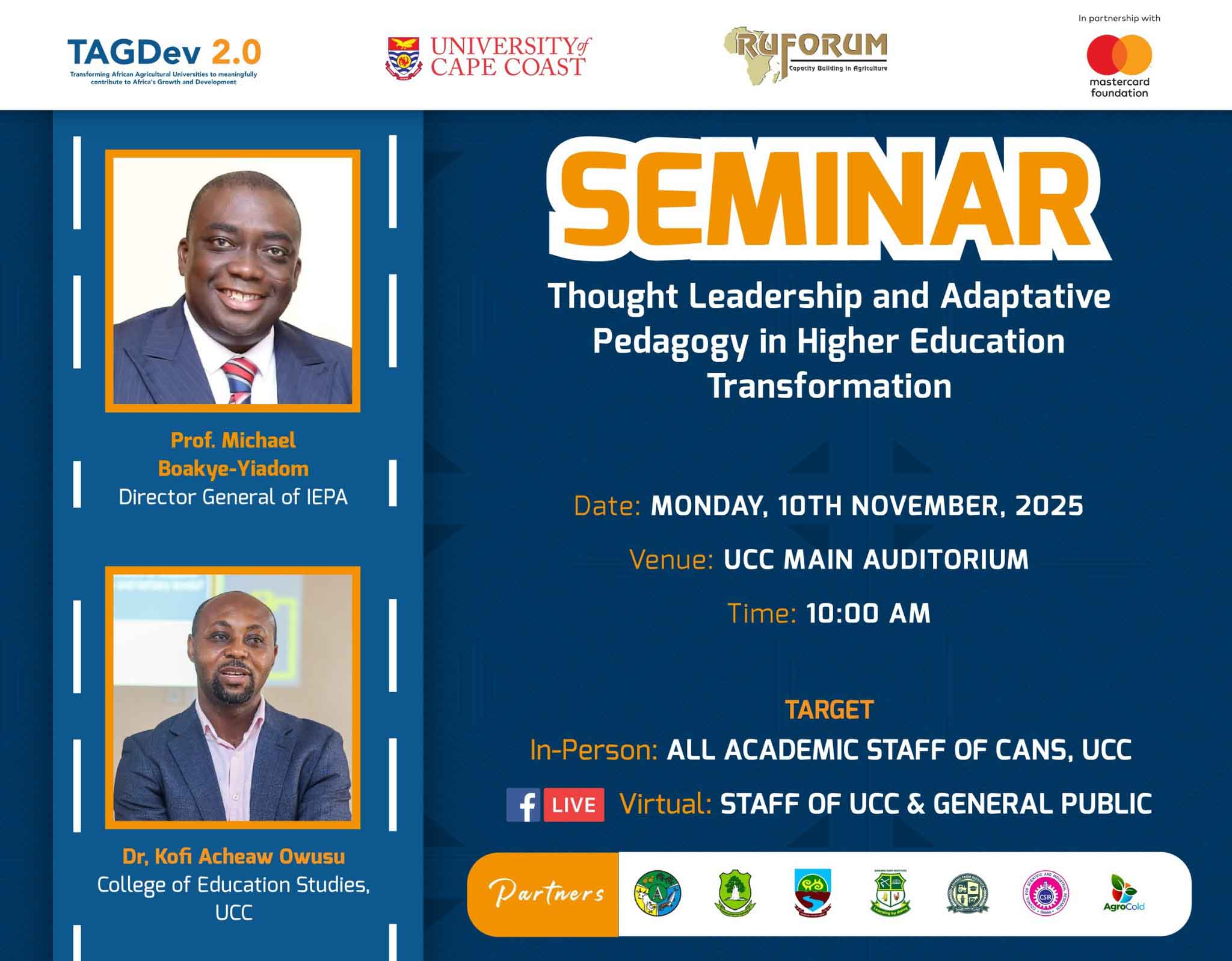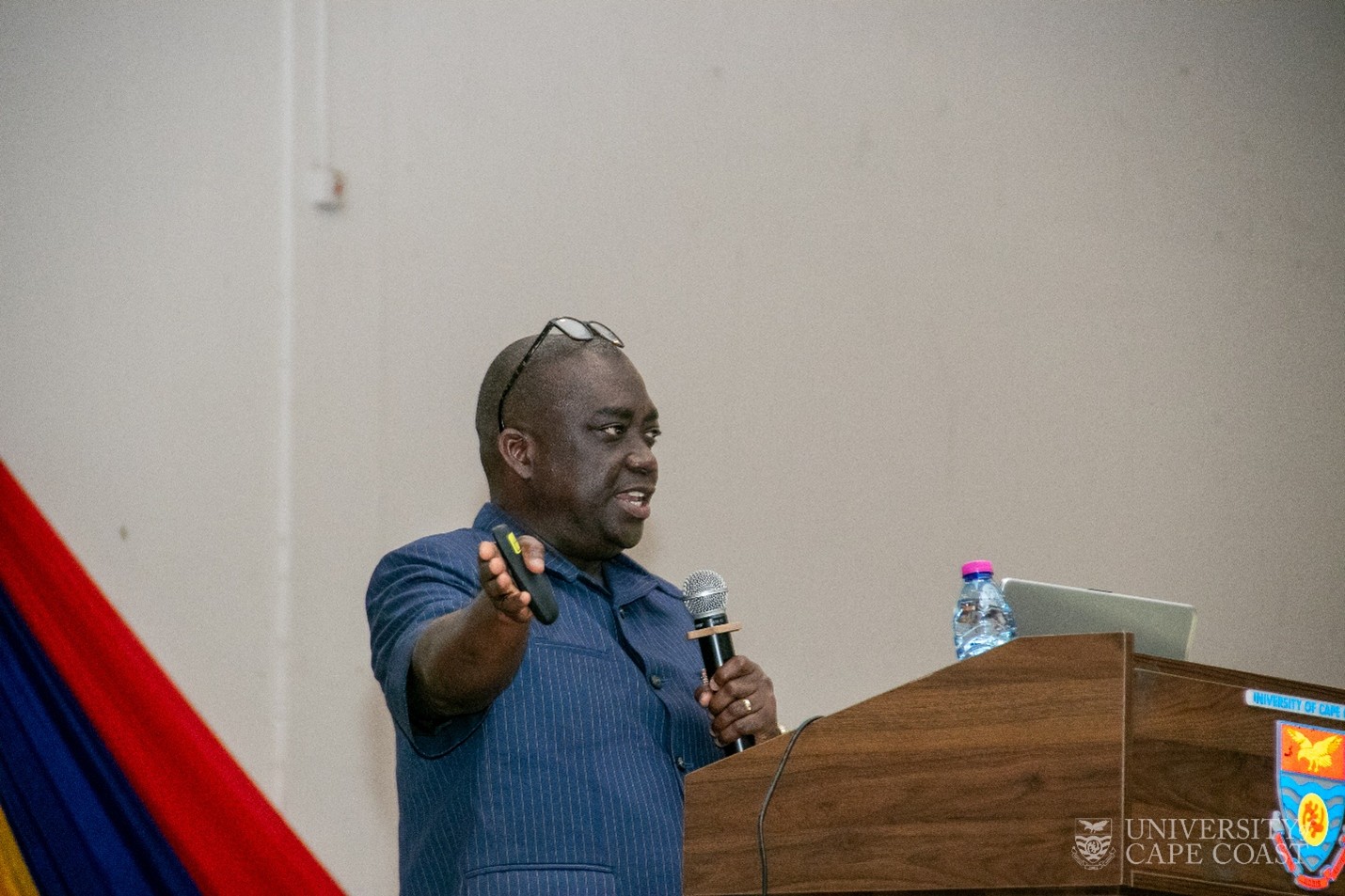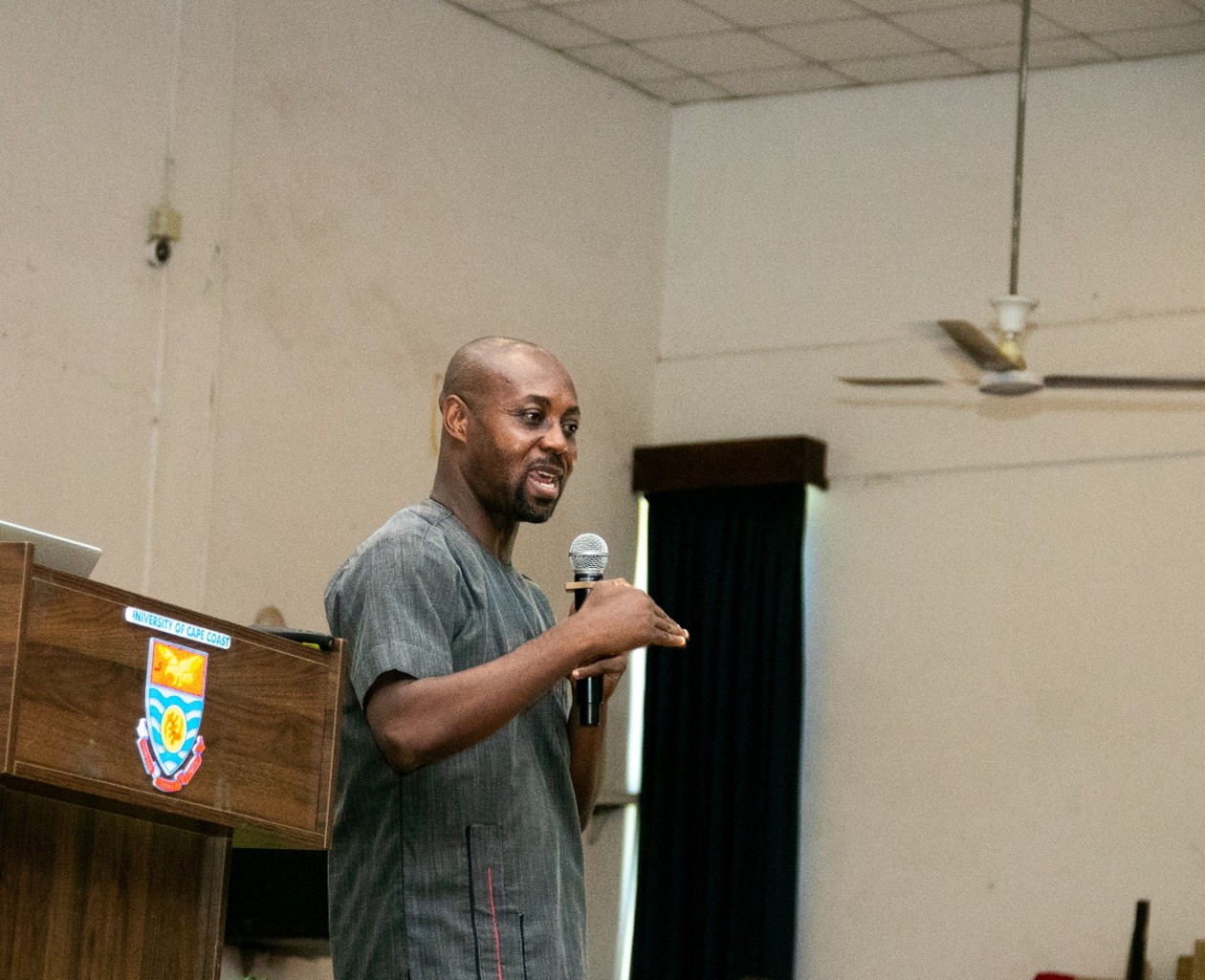The Director-General of the Institute for Educational Planning and Administration (IEPA) at the University of Cape Coast (UCC), Prof. Michael Boakye-Yiadom, has called for deliberate institutional strategies to strengthen leadership capacity of both staff and students in universities.
He explained that transformative leadership could be nurtured through structured mentorship, collaborative learning, and service-learning initiatives integrated into academic and co-curricular activities.
Prof. Boakye-Yiadom made the remarks during a seminar organised by the TAGDev 2.0 in collaboration with the College of Agriculture and Natural Sciences (CANS) for academic staff of CANS at UCC. It was on the theme: “Thought Leadership and Adaptive Pedagogy in Higher Education Transformation.”
Delivering a presentation on “The Role of Thought Leadership in Transformative Higher Education,” Prof. Boakye-Yiadom, explained that thought leadership is vital in reimagining education systems to address the complexities of global change, linking this idea to Sustainable Development Goal 4 (Quality Education), UNESCO’s Futures of Education Initiative, and the African Union’s Agenda 2063.
According to him, higher education transformation must be inclusive, value-driven, and purpose-oriented to cultivate ethical, innovative, and empathetic leaders.
He argued that educational leadership should go beyond knowledge transmission to character formation, citing the Ghanaian Adinkra symbols as a philosophical reminder of values-based leadership.
Prof. Boakye-Yiadom described universities as incubators of leadership—spaces where future leaders develop the capacity to influence teaching, research, governance, and community development.
Drawing on Arthur Chickering’s Seven Vectors of Student Development and Kouzes and Posner’s Leadership Challenge Model, he identified integrity, empathy, innovation, honesty, and the ability to inspire a shared vision as essential qualities of effective thought leaders.
On inclusivity, he urged universities to design responsive systems that support differently-abled students, first-generation learners, and those from marginalized communities. “True thought leadership thrives in spaces that embrace diversity, tolerance, and shared humanity,” he said.
He further advocated the adoption of data-driven educational policies and multi-sectoral collaboration to ensure that education remains centered on human development. Quoting Richard Riley, he noted, “Our children may be 20% of our population, but they are 100% of our future.”
Complementing Prof. Boakye-Yiadom’s submission, Dr. Kofi Acheaw Owusu, a Senior Lecturer at the Department of Science Education, underscored the need for universities to embrace adaptive pedagogy as a tool to enhance teaching and learning outcomes.
Speaking on “The Role of Adaptive Pedagogy in Higher Education Transformation,” Dr. Owusu explained that modern university classrooms are increasingly diverse, requiring flexible and responsive instructional methods that recognize varying learner backgrounds, strengths, and expectations.
“Adaptive pedagogy is not just a trend, it’s a transformation in how we understand learning. Our students do not arrive in the classroom as identical learners, so our teaching cannot remain static ”, he remarked
He emphasized that adaptive teaching fosters inclusivity, enhances engagement, and promotes critical and independent thinking by acknowledging individual learning needs.
Dr. Owusu also stressed the importance of psychological safety in classrooms, noting that students must feel free to express confusion, ask questions, and attempt answers without fear of embarrassment. “A classroom where students cannot say ‘I don’t understand’ is a classroom where real learning stops,” he said.
He encouraged lecturers to use formative assessment tools, such as the “muddiest point” technique, to gauge student understanding and refine their teaching. However, he acknowledged institutional constraints such as large class sizes, limited training opportunities, and rigid curricula.
To overcome these challenges, he called for university-level support to equip lecturers with the necessary skills and tools to implement adaptive teaching effectively.



